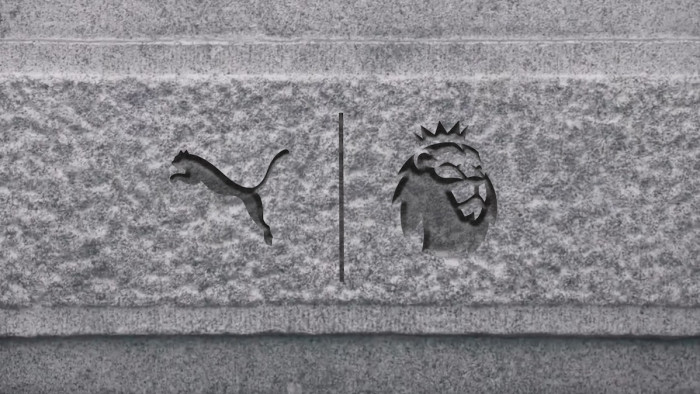Football is on a journey to finally start dealing with its mental health problems
Aaron Lennon's recent situation has led to other players approaching the PFA about their own mental health, but the sport still has a long way to go


As we entered Mental Health Awareness Week, some encouraging information about the relationship between football and mental illness came to light.
ITV’s Amy Lewis reported this week that more current and former players have sought treatment for mental health issues this year than in the entirety of 2016, a figure which supports earlier statements from PFA head of welfare Michael Bennett. Bennett has expressed a desire to change the mindset that opening up about their experiences is a sign of weakness, and this alone is a step in the right direction.
The number seeking support has grown in the aftermath of Aaron Lennon’s detention under the Mental Health Act, with the widespread solidarity shown towards the Everton winger from his fellow professionals perhaps encouraging others that the same will be there for them.
While some might look at it with concern, suggesting the figures imply a growing number of sufferers, it is far more likely that the response to the former England winger’s situation has merely allowed others to recognise conditions which they were previously either unable to elucidate or even reluctant to accept as serious.
According to MIND, Approximately one in four people in the UK will experience a mental health problem each year, while the Campaign Against Living Miserably (CALM) reports that suicide is now the largest killer of men in the UK under the age of 45. Considering the demographics of professional footballers, it does not seem too much of a stretch to say the 160 current and former footballers in the UK to approach the PFA for counselling in 2016 only scratches the surface.
While progress is undoubtedly being made in encouraging players to come forward, however, there are still steps to be taken when it comes to persuading supporters to rise above tribalism in the manner we have seen from clubs. Spurs fans’ support for Lennon (who spent several years at the club) during last Friday’s defeat at West Ham was met with boos from a section of the home crowd. From a scan of fan forums and Facebook groups, Lennon’s previous misdemeanours against the London club were at the heart of this behaviour, raising questions about misplaced priorities.
Still, we have reached a stage where conversations are being had, and outdated views are being visibly challenged rather than being allowed to fester. Certainly a lot has changed since November 2009, when German international goalkeeper Robert Enke took his own life.

In his fantastic book A Life Too Short – which acts as a posthumous memoir for Enke – German author and journalist Ronnie Reng recalls the sentiment that “when his goalkeeping career was over, [Enke] would finally be able to talk about his illness”.
“In our achievement-oriented society a goalkeeper, the last bastion in defence, can’t be a depressive,” Reng writes.
And, while things have improved, it feels impossible to ignore how elements of the environment fostered by professional football (and professional sport as a whole) can make it difficult for sufferers to come forward and speak about struggles with depression, anxiety or other mental illnesses.
Simultaneously, that environment will not act as a defence against such struggles, and indeed the level of downtime – even during the most involved playing careers – can prove detrimental to those who consider themselves to be alone with their own thoughts.
There are some whose retirement and distance from the game can further exacerbate mental health struggles without the crutch of the routine provided by the only career they have known, but for others it will be the game itself – and its unique set of pressures – which provide the means for mental illness to remain bottled up to an unhealthy degree.
“The support system for both current and former players needs to be upped but I think most important of all, the education and preparation of young players is far more important and can help them deal with what comes in later life,” former goalkeeper and current coach and broadcaster David Preece tells me.
“If they have people to talk through their problems with and not mask them then you can see things more rationally. If you don’t, that’s when the problems begin.
“If you don’t face up to your emotions and bottle them up, they can show themselves in different, more harmful ways later down the line.”

Reng’s “last bastion in defence” language has been evoked again recently, with former NHL goaltender Corey Hirsch penning a personal essay for The Players’ Tribune about suicidal thoughts brought on by long-undiagnosed OCD.
As Hirsch notes:
“The reason why the front of my brain felt like it was on fire was because of a dysfunction that starts in the frontal lobe. Basically, my wires were crossed.
I was so happy just to have some explanation for what was going on in my brain that I almost started weeping in his office.
Just saying it out loud took a huge weight off me.”
We cannot underestimate the value of sportsmen and women, many of them entering their profession at a young age without an orthodox education, being able to elucidate their mental well-being or otherwise.
The challenge comes in ensuring those unaffected by such conditions have the same education, so as to ensure suffering is not a one-way street.
“I will never forget the guys who went out of their way to make sure I had somebody to talk to, even though I never told them what was really wrong,” Hirsch recalls.
Both Hirsch’s and Enke’s situations emphasise the unique scenario in which professional sportsmen find themselves. A vocation has taken over their life to the point that walking away – if an option at all – is one fraught with uncertainty. Such a situation only strengthens the need for support within the game’s surroundings, something in which the PFA welfare department has a big role to play.
“Most professional players began playing as children and will have been playing professionally since their late teens,” the PFA acknowledges in a dedicated section on its website covering retirement.
“They have known nothing else, are trained for nothing else and are qualified for nothing else. While some players retrain to become football or sports coaches, managers or physios, for some the end of a career can be unnerving and depressing.”
But those sportspeople who have spoken of their struggles have only served to show that there is no one uniform path when it comes to competitive sport and mental health. While retirement can spark fears for some, it can relieve them for others.

For every Kelly Smith, the England striker who has spoken of suicidal thoughts during long injury-enforced absences, there is a Bojan Krkić, who withdrew from Spain’s squad in the aftermath of severe anxiety attacks, having broken into Barcelona’s first team as a teenager and – to the untrained eye – looking like a young man thriving with the world at his feet.
That Bojan only recently spoke about this time in his life tells its own story. The PFA’s welfare department only came into being in 2012, four years on from the Stoke forward’s struggles and months after the death of Wales manager Gary Speed, but there is a sense that football is becoming more receptive to a side of the game which was allowed to lurk in the background for too long.
Things have improved, with Preece telling me it took until his spell in Denmark with Silkeborg in 2005 for him to be in regular contact with a dedicated club sports psychologist. However, one of the other crucial elements for him was the ability to talk to his fellow pros – something from which any stigma will only be further removed as players see voices similar to theirs opening up publicly.
“Just picking up the phone and speaking to other players who had recently retired was a huge help, just knowing other people out there understand exactly what you’re thinking,” he notes.
“Far from being the brash, emotionless souls people think footballers are, get a few together and you’d be surprised how open they are with one another and how beneficial it is.”

We find ourselves in a unique position when assessing the struggles of Smith, Bojan, Lennon and others: the unique pressures associated with a career in the limelight cannot be ignored, yet simultaneously those who find themselves in this situation aren’t inherently given superhuman powers along with their first professional contract. We need to acknowledge the similarities as well as the differences if we want to become capable of the empathy required.
“We put a player welfare department in place in 2012 because I felt a lot of onus was being placed on the physical aspect of players playing football and not enough on their emotional side, and I think the two go hand in hand,” Bennett recently explained.
“Key for me is making our members aware of what is in place and the more we raise awareness, the more people will use the service.”
The blurred lines between physical and mental certainly appear to have applied to Bojan, who has recalled suffering from “a very strong and constant dizziness”, and Bennett is right to ensure visibility of one does not come at the expense of the other.
While we may be moving in the right direction, with the vocalising of individual stories helping lead the charge, we remain far from anything approaching a solution.
Even as more and more show solidarity with those suffering, there remain countless unfounded claims that the life of a footballer in the public eye should inherently make them immune to depression.
The stock response in such a situation should never be to introduce a player’s wages into the discussion, as if that has any bearing on one’s mental well-being. Financial security can theoretically offer greater means to pursue treatment, at least in relative terms, but to suggest it offers a defence against illness in principle is nonsense.
Yet even in 2017, we saw Lennon described as a ‘£55,000-a-week England footballer’ by the Daily Mail in discussions of his condition – with sections of the media complicit in spreading such a narrative.
Similarly, the aforementioned boos at the London Stadium come from a place not too dissimilar: when people are constantly fed the same lines about wages being high, and about club loyalties trumping all, acknowledgement of more serious matters like players’ mental health has a lot of work to do to break through that wall of noise.
The battle now comes in ensuring it doesn’t take isolated events, such as the deaths of Enke and Speed and the situation facing Lennon, to bring about such a spike in those seeking help. Mental Health Awareness Week plays an important part in ensuring people feel heard and not alone, but the challenge comes in ensuring this support and sentiment is sustained all year around, in all facets of the game.
Latest
Related Reviews and Shortlists









